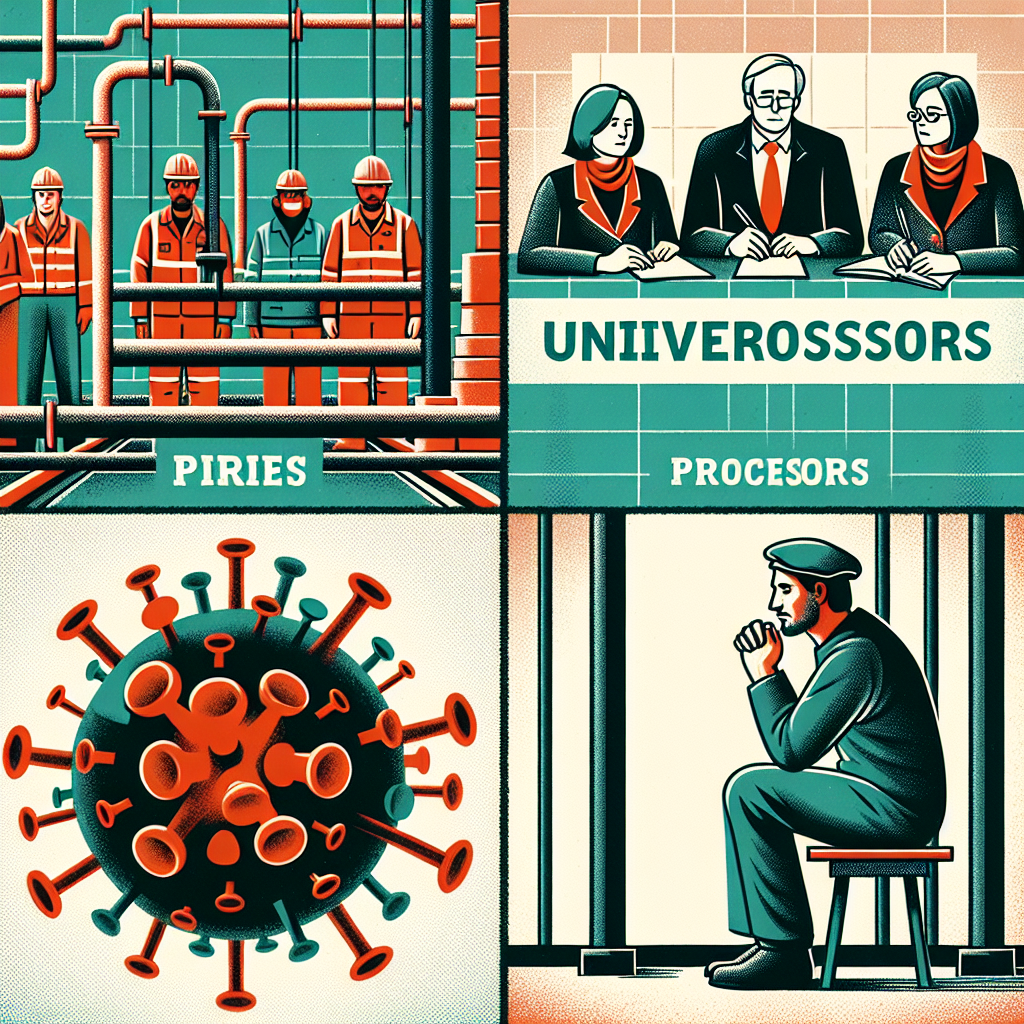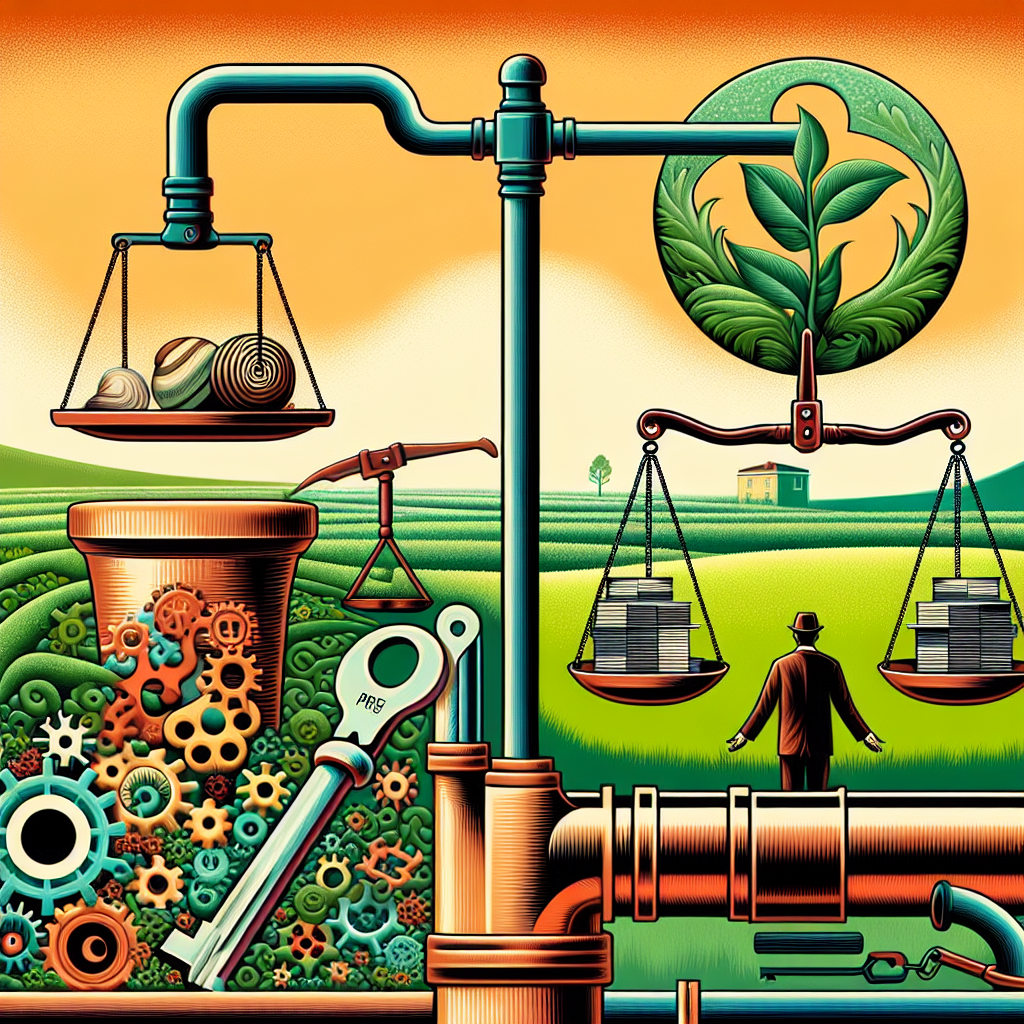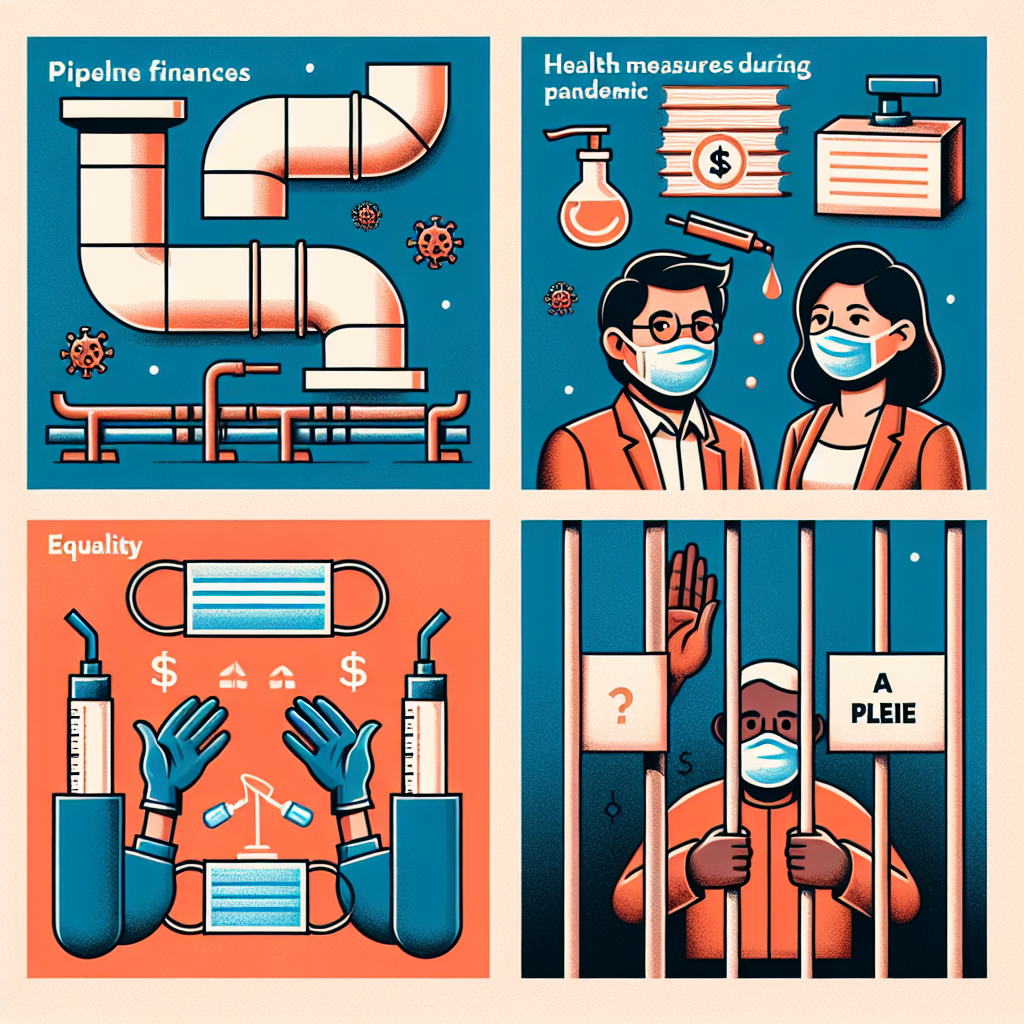The complexities surrounding recent legal decisions reflect the evolving landscape of American jurisprudence. Issues such as pipeline pay, pandemic preemption, professors’ parity, and a prisoner’s plea have surfaced, revealing the intricate interplay between law, policy, and individual rights. Each of these matters not only highlights significant legal principles but also underscores the broader societal implications of judicial rulings.
Pipeline Pay and Economic Justice
The debate over pipeline pay has gained momentum as labor unions advocate for fair compensation for workers involved in hazardous projects. Many argue that the risks associated with pipeline construction necessitate higher wages and better working conditions. The legal framework governing labor relations plays a crucial role in determining the outcomes of these disputes, with courts often balancing the rights of workers against the economic interests of corporations.
In recent rulings, courts have shown a willingness to support labor rights, emphasizing the importance of equitable pay structures. This trend reflects a growing recognition of the need for economic justice in industries that traditionally exploit labor. The outcomes of these cases may set precedents for future disputes, potentially reshaping the landscape of labor law and worker rights in the United States.
Additionally, the implications of these decisions extend beyond individual cases, impacting the broader economic environment. A robust labor market that values worker contributions could lead to increased consumer spending and overall economic growth. Thus, the ongoing discussions surrounding pipeline pay are not merely about wages; they are about the fundamental principles of fairness and equity in the workplace.
Pandemic Preemption and Public Health Policy
The COVID-19 pandemic has prompted a reevaluation of public health policies and their legal underpinnings. As states and local governments implemented various measures to curb the spread of the virus, questions arose regarding the extent of their authority. The legal doctrine of pandemic preemption emerged as a critical issue, particularly when state laws conflicted with federal guidelines.
Recent court cases have addressed whether state-level restrictions can supersede federal mandates, especially in the context of emergency health measures. For instance, some courts have upheld federal authority to impose regulations that states must follow, while others have struck down state laws that they deemed overly restrictive. These rulings are pivotal in shaping the future of public health policy as they clarify the boundaries of governmental power during health crises.
The implications of these legal battles are profound, as they not only affect public health strategies but also influence individual freedoms. As the nation grapples with ongoing health challenges, the outcomes of these cases will likely set significant precedents for how future public health emergencies are managed. Such decisions will determine whether state or federal authorities hold more power in dictating health measures, ultimately impacting the lives of countless citizens.
The tension between state and federal authority is further complicated by ongoing debates regarding individual rights during emergencies. The legal landscape surrounding these issues continues to evolve, with courts playing a crucial role in interpreting laws and guiding public policy. As seen in various recent rulings, including prison construction cases, these decisions can resonate beyond the immediate context, affecting broader legal principles and societal norms.

The recent legal landscape has been shaped by several pivotal cases that highlight the complexities of federal law and its intersection with individual rights. Among these, issues of pipeline pay, pandemic preemption, professors’ parity, and a prisoner’s plea have emerged as focal points of discussion. These cases not only reflect the evolving nature of legal interpretations but also underscore the broader implications for governance and civil liberties.
Pipeline Pay and Legal Interpretations
The concept of pipeline pay has garnered attention, particularly in the context of employment law and fair compensation practices. Legal debates surrounding this issue often hinge on the classification of workers and the obligations of employers under federal statutes. For instance, the implications of the compassionate release statute have been explored in cases involving nontraditional employment arrangements. The courts are tasked with interpreting how these laws apply to various sectors, especially in light of the pandemic’s impact on labor markets.
Employers are increasingly challenged to navigate the complexities of compensation structures while ensuring compliance with federal standards. The evolving interpretations of pipeline pay can have significant ramifications for both employees and employers. As legal precedents continue to develop, the need for clarity in compensation practices remains paramount.
Pandemic Preemption and Government Authority
Pandemic preemption has emerged as a critical legal issue, particularly concerning the extent of governmental authority during public health emergencies. The interplay between state and federal regulations raises questions about the limits of state power when federal guidelines are in place. Legal challenges have surfaced regarding the deployment of resources, such as the national guard deployment, which has been central to managing the pandemic response.
These legal battles often involve assessing the balance between public safety and individual rights. Courts have been tasked with determining whether state actions are justified under federal law, particularly when public health measures conflict with personal liberties. The outcomes of these cases can set important precedents for future governance during emergencies.
Professors’ Parity and Employment Rights
The topic of professors’ parity has gained traction, especially in discussions about equal pay and employment rights within academic institutions. Disparities in compensation among faculty members have prompted legal scrutiny, as educators seek to challenge inequitable pay structures. In many instances, the legal framework surrounding employment discrimination has been invoked to advocate for fair treatment and equitable compensation.

As institutions grapple with these issues, the potential for litigation increases. Faculty members are increasingly aware of their rights and the legal avenues available to address inequities. The outcomes of these legal challenges could significantly impact hiring practices and compensation policies across higher education.
A Prisoner’s Plea for Justice
The plea of a prisoner seeking relief from unjust sentencing practices has brought to light the complexities of criminal justice reform. Recent cases have raised critical questions about the constitutionality of acquitted conduct sentencing. The Supreme Court’s decisions on such matters will likely influence future sentencing guidelines and the treatment of incarcerated individuals.
In particular, the case of federal official issues has highlighted the need for reform within the justice system. As legal advocates push for changes, the voices of those affected by these policies become increasingly important in shaping the narrative around justice and equality.
The ongoing discussions surrounding pipeline pay, pandemic preemption, professors’ parity, and a prisoner’s plea reflect the complex interplay of legal, social, and economic factors that shape our society. Each of these issues presents unique challenges and implications for various stakeholders, ranging from government officials to incarcerated individuals. As the Supreme Court continues to navigate these intricate cases, the outcomes will undoubtedly influence public policy and individual rights in significant ways.
Pipeline Pay and Its Implications
Pipeline pay refers to the compensation structures linked to the construction and maintenance of energy pipelines. This topic has gained prominence as debates over environmental concerns and economic benefits intensify. Proponents argue that fair compensation for workers is essential to attract skilled labor, particularly in regions where pipeline construction is prevalent. However, critics often highlight the potential environmental risks associated with such projects, raising questions about whether the economic benefits justify the ecological costs.
In recent discussions, the impact of pipeline pay on local economies has been a focal point. For many communities, the influx of jobs and revenue from pipeline projects can lead to significant economic growth. Yet, this growth often comes with trade-offs, including potential disruptions to local ecosystems and community dynamics. As stakeholders weigh these factors, the legal frameworks governing pipeline pay will likely evolve to address these competing interests.

Furthermore, the question of pandemic preemption has emerged as a pertinent issue in the context of pipeline projects. As governments implement regulations to mitigate the effects of the pandemic, the energy sector must navigate these evolving legal landscapes. The balance between ensuring public health and facilitating economic activity remains delicate, with potential ramifications for both workers and the communities they inhabit.
The Intersection of Education and Justice
Professors’ parity refers to the ongoing discussions regarding equitable pay and treatment for educators across various institutions. This issue has gained traction as disparities in compensation become increasingly scrutinized, particularly in the wake of the pandemic. Many educators argue that fair compensation is vital for attracting and retaining talent, thereby enhancing the quality of education provided to students.
The legal implications of professors’ parity extend beyond mere compensation. As institutions grapple with budget constraints and shifting enrollment patterns, the question of how to allocate resources fairly becomes paramount. This is particularly relevant in light of recent decisions by the Supreme Court regarding funding and resource distribution within educational systems. The outcomes of these discussions will likely shape the future landscape of higher education and influence the experiences of both educators and students.
In a related context, the plight of incarcerated individuals seeking justice highlights the broader themes of equity and fairness within the legal system. Recent cases, such as the one involving the prisoner’s religious claim, underscore the complexities of navigating legal rights while incarcerated. As these cases unfold, they reveal the challenges faced by individuals who often lack the resources to advocate effectively for their rights.
Ultimately, the convergence of pipeline pay, pandemic preemption, professors’ parity, and the issues surrounding prisoners’ rights illustrates the multifaceted nature of contemporary legal and social challenges. As society continues to grapple with these issues, the need for thoughtful dialogue and equitable solutions remains more critical than ever. The legal decisions made in these areas will not only impact the lives of those directly involved but will also resonate throughout the broader community, shaping public perception and policy for years to come.